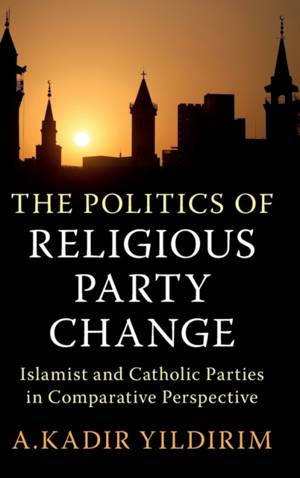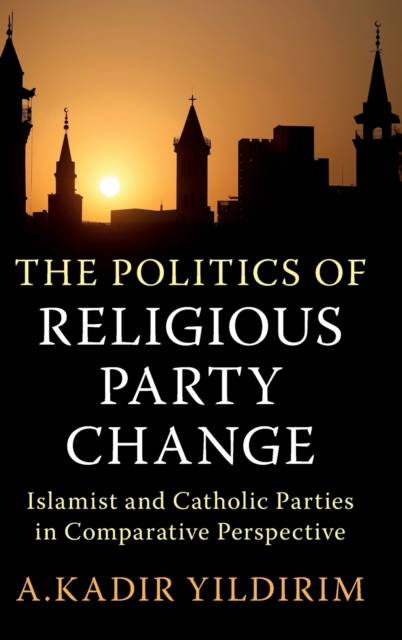
- Afhalen na 1 uur in een winkel met voorraad
- Gratis thuislevering in België vanaf € 30
- Ruim aanbod met 7 miljoen producten
- Afhalen na 1 uur in een winkel met voorraad
- Gratis thuislevering in België vanaf € 30
- Ruim aanbod met 7 miljoen producten
Zoeken
The Politics of Religious Party Change
Islamist and Catholic Parties in Comparative Perspective
A Kadir Yildirim
€ 158,95
+ 317 punten
Omschrijving
The Politics of Religious Party Change examines the ideological change and secularization of religious political parties and asks: when and why do religious parties become less anti-system? In a comparative analysis, the book traces the striking similarities in the historical origins of Islamist and Catholic parties in the Middle East and Western Europe, chronicles their conflicts with existing religious authorities, and analyzes the subsequently divergent trajectories of Islamist and Catholic parties. In examining how religious institutional structures affect the actions of religious parties in electoral politics, the book finds that centralized and hierarchical religious authority structures - such as the Vatican - incentivize religious parties to move in more pro-system, secular, and democratic directions. By contrast, less centralized religious authority structures - such as in Sunni Islam - create more permissive environments for religious parties to be anti-system and more prone to freely-formed parties and hybrid party movements.
Specificaties
Betrokkenen
- Auteur(s):
- Uitgeverij:
Inhoud
- Aantal bladzijden:
- 320
- Taal:
- Engels
- Reeks:
Eigenschappen
- Productcode (EAN):
- 9781009170741
- Verschijningsdatum:
- 5/01/2023
- Uitvoering:
- Hardcover
- Formaat:
- Genaaid
- Afmetingen:
- 152 mm x 229 mm
- Gewicht:
- 648 g

Alleen bij Standaard Boekhandel
+ 317 punten op je klantenkaart van Standaard Boekhandel
Beoordelingen
We publiceren alleen reviews die voldoen aan de voorwaarden voor reviews. Bekijk onze voorwaarden voor reviews.











